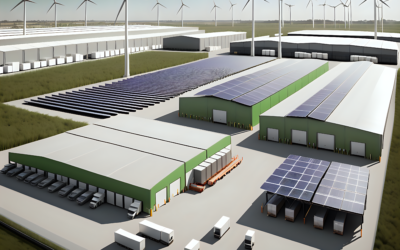The European Venture Capital (VC) market faced significant challenges in 2023, with a contraction in deal volume, exits, and fundraising. However, the outlook for 2024 suggests potential for growth and development, albeit with continued caution and uncertainty. Here are the key trends we expect for the European VC market in 2024.
Continuation of Conservative Investment Approach
Investors are expected to continue their conservative approach to capital deployment due to ongoing macroeconomic uncertainties and high inflation. This could lead to an increased prevalence of funding rounds incorporating debt alongside equity, more layoffs, and cost-cutting measures[1].
VCs are expected to maintain their cautious investment approach, complemented by an increased focus on active engagement. This approach is particularly vital in light of the fundraising challenges faced by portfolio companies, necessitating greater strategic and operational support from investors.
Slow Fundraising Activity
The European VC market faced several challenges in 2023, with funding to European startups reaching $52 billion, down 39% year over year from 2022[2]. The first nine months of 2023 saw European VC deal value at €43.6 billion, a decrease of 49.1% compared to the same period in 2022.
Fundraising in 2023 reached €13.9 billion over 91 vehicles, which is half the level of 2022[3]. The report suggests that global macroeconomic changes have influenced this downturn, impacting both companies and investors[4]. In summary, the decline in fundraising activities in the European VC market is likely to have a noticeable impact on the investment landscape, influencing both the strategies of venture capitalists and the growth trajectories of companies in the short term.
Impact on VC Performance
The substantial contraction in fundraising activities within the European VC ecosystem have several short-term impacts on performance.
Firstly, there’s a reduced investment capacity; with less capital raised, Venture Capitalists (VCs) are finding themselves with limited funds, particularly affecting their ability to invest in new or speculative ventures. This scarcity of funds is also precipitating increased competition for deals, as VCs vie for high-quality investment opportunities amidst a more constrained financial environment. Additionally, this downturn in fundraising is impacting portfolio companies significantly. As VCs become more cautious in their investments, they are guiding portfolio companies towards more conservative financial strategies, emphasizing slower growth and a stronger focus on preserving capital. This approach is driven by a need to ensure the sustainability of existing investments, reflecting a strategic adjustment in response to the broader economic challenges faced by the sector.
M&As to Dominate as IPO Market Remains Subdued
In 2024, the landscape for exits in the VC sector is anticipated to continue favoring mergers and acquisitions (M&As) over Initial Public Offerings (IPOs). Due to prevailing macroeconomic factors and high interest rates, a meaningful recovery in the volume and value of VC-backed IPOs is not expected. This subdued IPO market is steering VC-backed companies towards M&As as their preferred exit strategy. The ongoing challenges in the IPO market, driven by the broader economic environment, are making M&As a more viable and attractive option for realizing investment returns.
VCs embrace Collaboration and Active Engagement
In the face of challenging fundraising conditions, VCs are adapting their strategies to effectively manage uncertainties. A key tactic is fostering collaborations and strategic alliances. Through their networks, VCs are engaging in co-investments and partnerships, countering the constraints of limited funding while diversifying risks and pooling resources and expertise.
Moreover, in these times, the adoption of an affordable loss approach is becoming increasingly imperative. This perspective encourages VCs to focus on managing risks prudently, rather than solely pursuing maximum returns, thus aligning more closely with a sustainable investment philosophy. This method is particularly relevant in a market characterized by funding constraints, as it aids in making more calculated and cautious investment decisions.
Additionally, VCs are increasingly taking an active role in their portfolio companies, which is crucial in a market with reduced funding. This goes beyond financial investment, involving close collaboration to align strategies, mentorship, and operational guidance. Such active involvement is key to mitigating risks and guiding companies towards stability and growth, positioning VCs not just as investors, but as integral partners in these companies’ journeys through the current economic landscape.
Opportunities Amidst Funding Challenges
Despite a challenging funding environment, certain sectors like B2B SaaS, AI, and Clean Energy are emerging as promising areas for growth and investment[5]. These sectors are attracting investor interest due to their resilience and innovative potential. In response to a focus on capital efficiency, there is a shift in funding structures, with investors increasingly favoring a blend of debt and equity. This approach provides startups with a more balanced risk profile and greater financial flexibility, crucial in the current economic climate where cash preservation and sound financial management are key.
The current economic conditions are leading investors to review their investment strategies. In this context, companies that offer adaptable and resilient solutions are becoming particularly attractive to investors. The market is thus nurturing a new generation of businesses capable of enduring volatility and uncertainty, presenting valuable opportunities for VCs.
[1] What Europe’s VC funding landscape will look like in 2024, according to analysts (thenextweb.com)
[2] European Venture In 2023 Halved From Peak, But Was Still Above Pre-Pandemic Funding (crunchbase.com)
[3] Q3 2023 European Venture Report | PitchBook
[4] Global VC investment fell from $531bn in 2022 to $344bn in 2023 the lowest level since 2019 – Opalesque
[5] 2024 Outlook – Cambridge Associates






